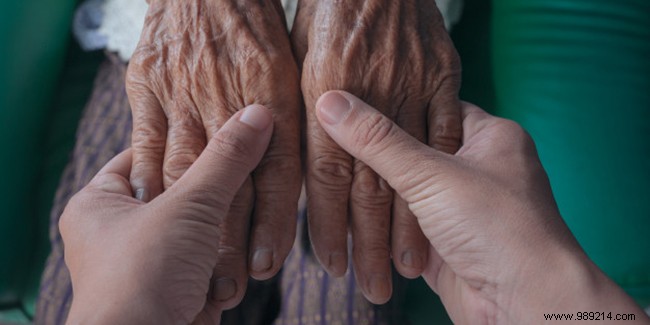
With the aging of the population, more and more people are affected by degenerative diseases. These pathologies refer to conditions that evolve over time and which cause people who suffer from them to increase their neurological deficiencies and/or physical disabilities. A degenerative disease generally progresses to a very significant disability. In France, the degenerative diseases that particularly affect the elderly are more specifically neurodegenerative diseases such as Alzheimer's or Parkinson's disease.
Degenerative diseases are defined as all diseases that develop gradually and which cause people with physical, physiological or mental impairments.
All of these progressive and serious diseases include various diseases such as dementia (including Alzheimer's disease for example), Parkinson's disease, multiple sclerosis, paraplegia, myopathy or myasthenia, epilepsy, stroke or stroke, and other neurological conditions. The best known of the degenerative diseases, and certainly the most widespread, are the neurodegenerative diseases which cause degeneration of the nervous system.
The increasing deterioration in the state of health caused by degenerative diseases is difficult for the people concerned. In the end, it most often results in a severe handicap, whether physically or mentally.
Degenerative diseases are generally of genetic origin, that is to say that they are hereditary and transmitted from one generation to another. But these pathologies can also be caused by significant and long exposure to biological and toxic substances throughout life.
If we know how to treat certain degenerative diseases, more precisely to relieve or reduce some of their symptoms, most of them cannot be cured.
The most common age-related degenerative diseases are Alzheimer's disease, and related pathologies, and Parkinson's disease.
Alzheimer's disease belongs to the degenerative diseases classified in the category of dementia. This is why it is called a neurodegenerative disease. Alzheimer's disease is characterized by progressive brain damage that progresses until the death of neurons in the brain. This evolution is variable according to the people affected.
The most revealing symptoms of Alzheimer's disease are the increasing loss of memory and of certain intellectual functions, language disorders, difficulty performing certain gestures or loss of knowledge of objects and people. This pathology is very disabling for people, especially the elderly, who suffer from it and it has significant repercussions in their acts of daily life. At a certain stage of this degenerative disease, people completely lose their autonomy and must be assisted in all their activities.
Today, in France, it is estimated that approximately 1.2 million people are affected by this disease or a related pathology such as dementia of vascular origin, dementia with Lewy bodies, or fronto lobar degeneration. -temporal. Alzheimer's disease is the most common dementia observed in the elderly.
Parkinson's disease is one of the degenerative diseases that also affects the elderly the most. It can however declare itself from the age of 58 on average. Like Alzheimer's disease, it is categorized as a neurodegenerative disease. There are approximately 200,000 people affected by this disease in France.
Parkinson's disease is a progressive disease that causes the progressive disappearance of certain neurons in the brain. It particularly affects the production of dopamine, a molecule that allows neurons to communicate with each other. This is why the main consequence of this pathology is the alteration of the motor functions of the affected person:they have difficulty performing certain movements, their gestures are slowed down, they suffer from rigidity of the arms or legs, and tremors. when his muscles are at rest.
Parkinson's disease causes pain and is also accompanied by other disorders such as great fatigue, cramps, constipation, urgent urination, profuse sweating and salivation, problems concentrating, anxiety, sleep disturbances, loss of smell, swallowing and speech problems.